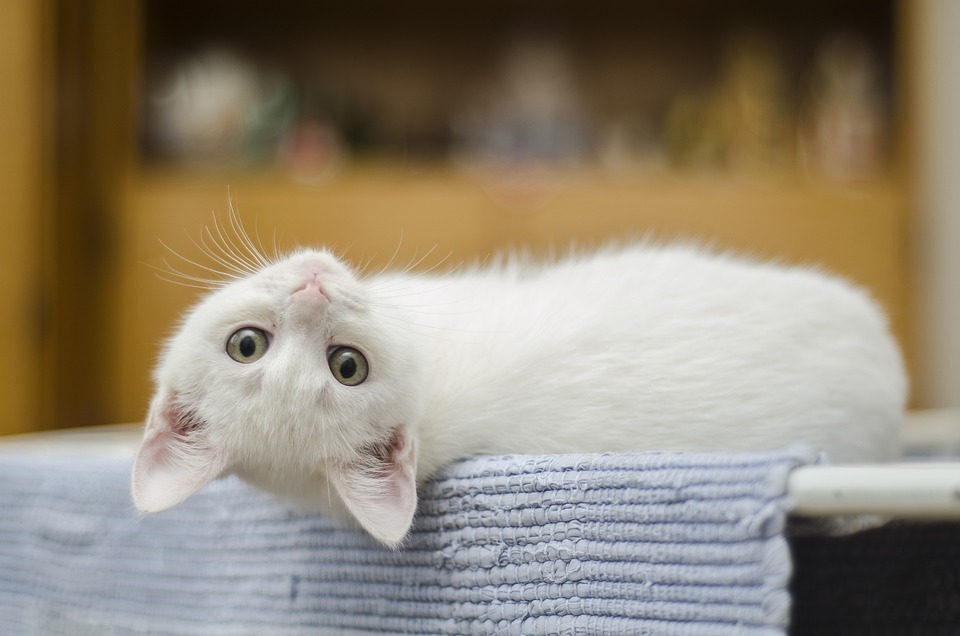As a cat owner, it’s crucial to prioritize not only the physical well-being of your feline companion but also their mental health. Cats, just like humans, can experience stress, which can lead to various behavioral and health issues if left unaddressed. In this article, we will explore ten effective stress management techniques that will help you create a peaceful and harmonious environment for your beloved pet.
1. Create a Safe and Calming Environment
Cats thrive in a secure and stress-free environment. To create such an atmosphere, ensure your cat has a designated space where they can retreat to when they feel overwhelmed. This space should include cozy bedding, hiding spots, and toys to keep them engaged. Additionally, providing vertical spaces like cat trees or shelves allows them to observe their surroundings and feel more secure.
2. Maintain a Consistent Routine
Cats are creatures of habit and enjoy predictability. Establishing a consistent daily routine for feeding, playtime, and interaction helps reduce stress. Cats feel most secure when they know what to expect, so try to maintain regularity in their daily activities.
3. Provide Enrichment Activities
Engaging your cat in mentally stimulating activities can significantly alleviate stress. Offer a variety of toys, scratching posts, and puzzle feeders to keep your cat entertained and mentally engaged. Rotate toys regularly to prevent boredom and stimulate their natural instincts.
4. Ensure Proper Hygiene
Maintaining good hygiene is essential for your cat’s well-being. Regular grooming sessions, including brushing their coat, cleaning their ears, and trimming their nails, not only help keep them clean but also serve as bonding moments that help reduce stress.
5. Create a Quiet and Peaceful Atmosphere
Cats are highly sensitive to their surroundings, particularly to loud noises and sudden changes. Minimize loud music, excessive noise, or sudden movements in their environment. Creating a calm and peaceful atmosphere promotes relaxation and reduces stress levels.
6. Encourage Play and Exercise
Physical exercise plays a vital role in reducing stress for cats. Engage your feline friend in interactive play sessions using toys or laser pointers. Regular exercise not only helps them burn off excess energy but also promotes a sense of well-being.
7. Utilize Pheromone Products
Feline facial pheromones, such as Feliway, can have a calming effect on cats. These synthetic pheromones mimic the scent produced by cats when they are content and relaxed. Diffusers, sprays, or collars containing these pheromones can be effective in reducing stress-related behaviors.
8. Provide Hiding Places
Cats often seek refuge in hiding places when they feel stressed or overwhelmed. Ensure your home has suitable hiding spots such as covered beds, boxes, or designated cat caves. These hiding places offer a sense of security and comfort.
9. Maintain a Nutritious Diet
A well-balanced diet is crucial for your cat’s overall health, including their mental well-being. Provide high-quality cat food that meets their nutritional needs. Consult with your veterinarian to ensure your cat’s diet supports stress reduction and overall wellness.
10. Seek Professional Help
If your cat’s stress levels persist or escalate despite your efforts, it’s advisable to seek professional help. A veterinarian or animal behaviorist can assess your cat’s condition and provide tailored advice or recommend additional therapies to manage their stress effectively.
FAQs (Frequently Asked Questions)
Q: How can I tell if my cat is stressed?
A: Cats may show various signs of stress, including excessive grooming, aggression, hiding, decreased appetite, vocalization, or changes in litter box habits. Monitor any unusual behaviors and consult with a veterinarian if you suspect your cat is stressed.
Q: Can stress affect my cat’s health?
A: Yes, chronic stress can have negative effects on your cat’s health. It can weaken their immune system, increase the risk of urinary tract issues, and contribute to obesity. Managing stress is crucial for maintaining your cat’s overall well-being.
Q: Are there any natural remedies to reduce stress in cats?
A: Natural remedies such as pheromone products, herbal supplements (under veterinary guidance), and calming music or classical music specifically designed for cats can help reduce stress levels. However, it’s important to consult with a veterinarian before introducing any new remedies.
Q: How long does it take for cats to adjust to a new environment?
A: Cats may take anywhere from a few days to several weeks to adjust to a new environment. To ease the transition, provide a safe and comfortable space, maintain their routine, and gradually introduce them to different areas of the home.
Q: Can stress be prevented in cats?
A: While it may not always be possible to prevent stress entirely, providing a consistent routine, a stress-free environment, and plenty of mental and physical stimulation can greatly reduce the likelihood of stress in cats.
Remember, understanding and managing your cat’s stress is essential for their overall well-being. By implementing these stress management techniques, you can help your furry friend lead a happy and stress-free life.








